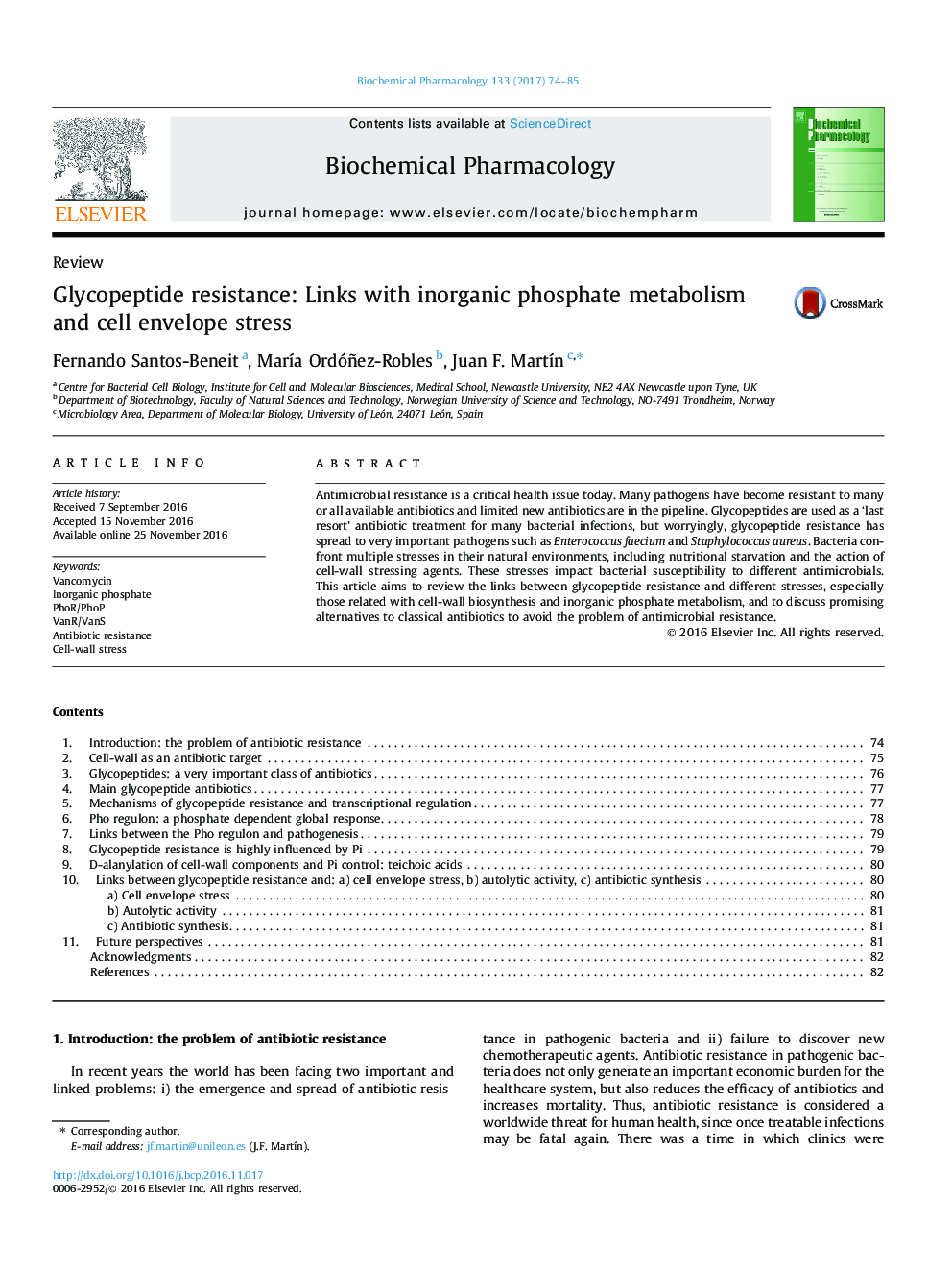| Article ID | Journal | Published Year | Pages | File Type |
|---|---|---|---|---|
| 5552249 | Biochemical Pharmacology | 2017 | 12 Pages |
Antimicrobial resistance is a critical health issue today. Many pathogens have become resistant to many or all available antibiotics and limited new antibiotics are in the pipeline. Glycopeptides are used as a 'last resort' antibiotic treatment for many bacterial infections, but worryingly, glycopeptide resistance has spread to very important pathogens such as Enterococcus faecium and Staphylococcus aureus. Bacteria confront multiple stresses in their natural environments, including nutritional starvation and the action of cell-wall stressing agents. These stresses impact bacterial susceptibility to different antimicrobials. This article aims to review the links between glycopeptide resistance and different stresses, especially those related with cell-wall biosynthesis and inorganic phosphate metabolism, and to discuss promising alternatives to classical antibiotics to avoid the problem of antimicrobial resistance.
Graphical abstractDownload high-res image (201KB)Download full-size image
